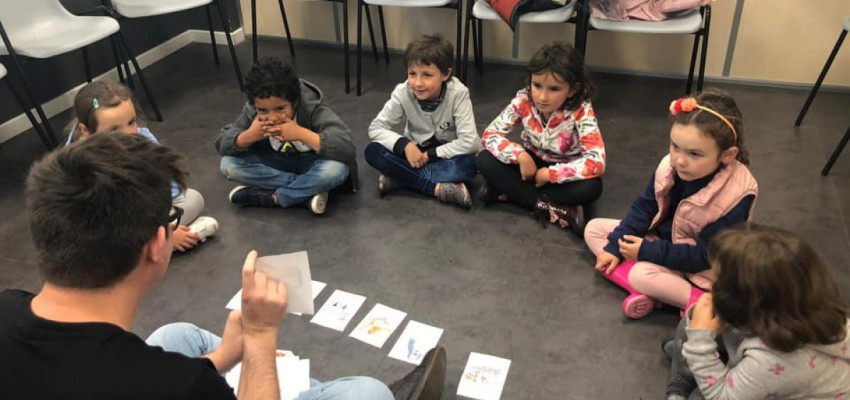A routine is a set of tasks or procedures which are regularly implemented in class to promote positive behaviour and good classroom management. If done consistently in classes of Young Learners, a good routine can be one of the most effective strategies a teacher has up their sleeve.
But, why is that? You may be thinking. A good routine can help keep the pace of the lesson as well as encouraging students to develop positive learning habits and increase their confidence. Younger Learners find comfort in a set of familiar routines and ultimately, the more you implement them, the less dead time you’ll have in class and the happier students you’ll have.
What elements can be included in a routine?
Here are our top 5 elements to include in a successful classroom routine:
- Chants: These are very useful when you need to get students to do something but don’t want to have to try and be heard above the students themselves. For example, use a ‘tidy up’ or ‘books in bag’ chant to end the lesson or a ‘look and listen’ chant to end a certain activity and get students to focus on the teacher. Let your creativity shine or if this fails, get some inspiration online for some chants that other teachers have used in their classes of YLs.
- Exit activities: These are any activities which you regularly do before the end of the lesson and students must complete them before they leave. They are a great way of getting students ready for the end of the class and to revise some key language that they are practising. Why not have students put the flashcards away that you have been using in class, whilst telling you the corresponding word. For older learners, get them to pick a question out of a pot and answer it before they leave the room. The possibilities are endless.
- Taking the register: There are so many ways to take the register other than just calling out the students’ names in order. Make the most of this most familiar of routines and incorporate other elements of language learning into it. Use rotating personal questions to get students talking or get them to do a short vocabulary review of recently learnt language. For older students, why not invite them to ask you questions as you call their names in the register? This will work on their use of question forms and will give them a chance to get to know you a little better.
- Common questions: There are always those questions which students always ask in their L1 because they are not used to asking them in English. Work on them regularly in class and have visual cues around the classroom so they can see them throughout the class, and you can point to them if students revert back to the L1 to ask the questions.
- Rotas: Younger learners love to be an active part of the lesson and not just part of the audience. Make them a regular part of the procedure by creating a rota of classroom tasks and introducing this at the beginning of the lesson. Make sure you give everyone a fair chance of being the helper, pencil sharpener, or book collector and have it on display so students can look forward to the day when it’s their turn!
Find out more about implementing classroom routines in The YLs Course, our new teacher training course for teachers of English to children and teenagers. You can try out the first module for free!
